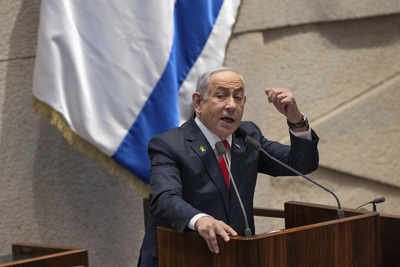Israeli Prime Minister Benjamin Netanyahu recommended approval to his cabinet on Tuesday US-brokered ceasefire The deal with Hezbollah signals a possible reprieve after 14 months of conflict linked to the ongoing Gaza war. Despite the growing optimism, intense clashes continued in Lebanon, creating uncertainty about the deal’s immediate implementation.
Details and Objectives of the Armistice
The proposed agreement outlines a two-month pause in hostilities, requiring Hezbollah to withdraw troops north of Lebanon’s Litani River while Israel returns its troops to the border. Thousands of Lebanese troops and UN peacekeepers will oversee the implementation, overseen by a US-led international panel. However, disputes over enforcement mechanisms, particularly Israel’s insistence on responding to violations, pose challenges to finalizing the deal.
Netanyahu argued that a cease-fire would weaken Hezbollah’s influence, isolate Hamas in Gaza and divert Israel’s attention to Iran. “If Hezbollah breaks the agreement, we will attack with force,” he warned in a televised address.
Growth in final hours
Hours before the cabinet meeting, Israel intensified airstrikes in Lebanon, targeting areas where Hezbollah activity had been reported. Lebanese officials reported 23 deaths, including civilians, in strikes in Beirut, Tire and Baalbek. Israeli warnings prompted mass evacuations to parts of southern Lebanon and Beirut.
Hezbollah responded with a rocket barrage into northern Israel, triggering air strike warnings. The Israeli military said ground forces clashed with Hezbollah near the Litani River, claiming to have destroyed a key rocket launcher.
Regional and political implications
The ceasefire could ease tensions between Israel and Hezbollah, whose support for Hamas has raised fears of a wider regional conflict. However, critics, including Israel’s National Security Minister Itamar Ben-Gavir, opposed the deal, calling it a “missed opportunity to eliminate Hezbollah”.
While the proposal offers a way to end the Israel-Hezbollah conflict, its impact on the Gaza war remains uncertain. “Nothing is done until everything is done,” warned White House national security spokesman John Kirby.
If implemented, the deal would mark an important step towards regional stability but critical questions about its implementation and sustainability remain unanswered.
